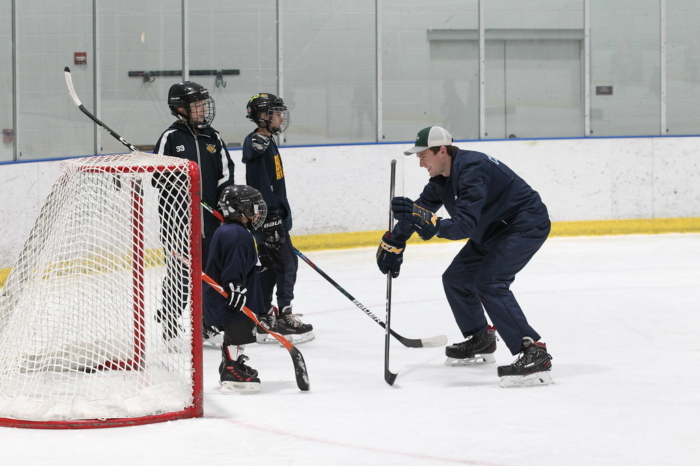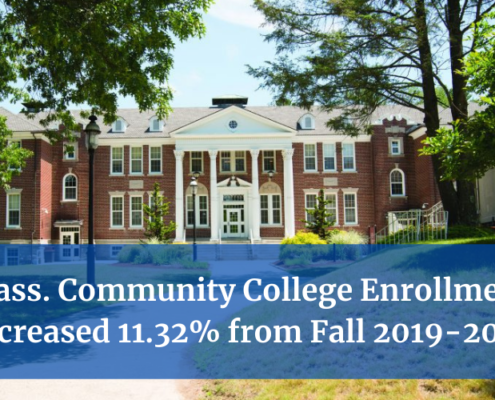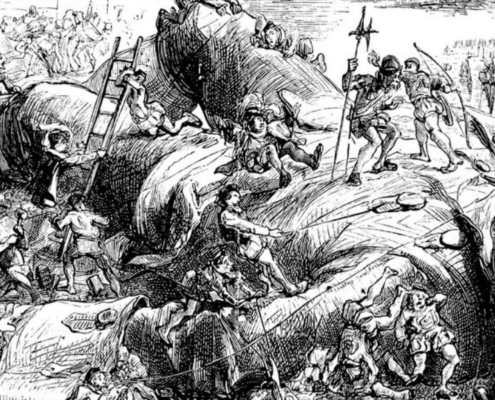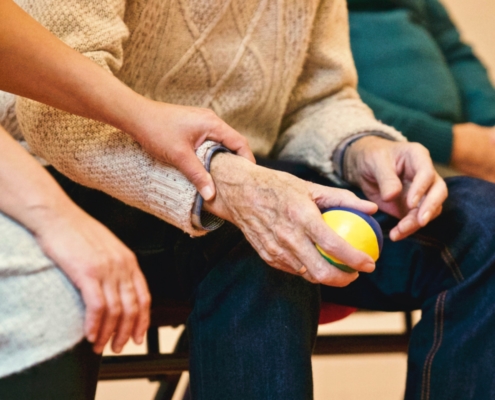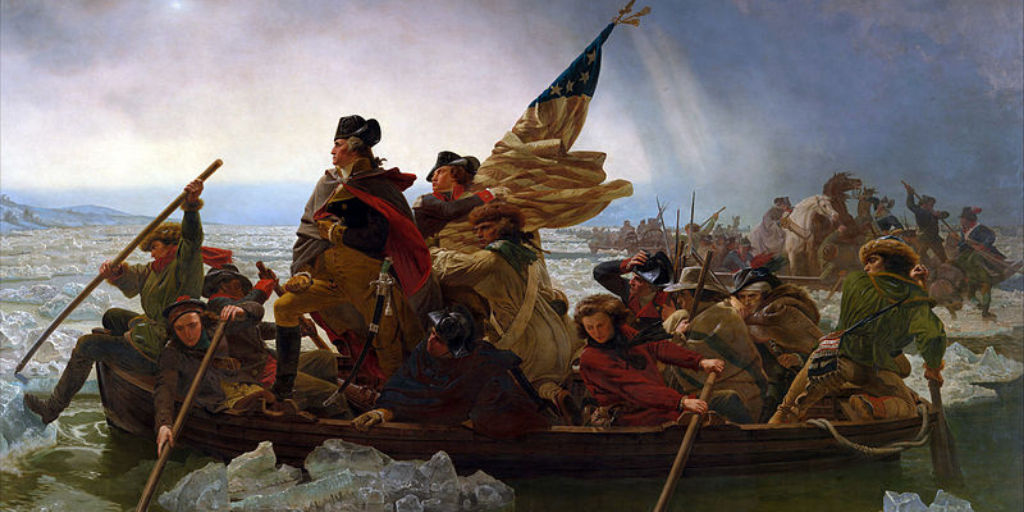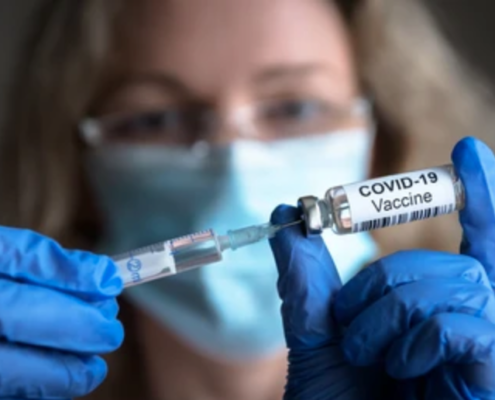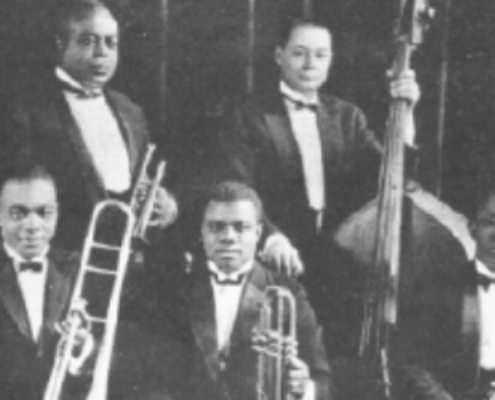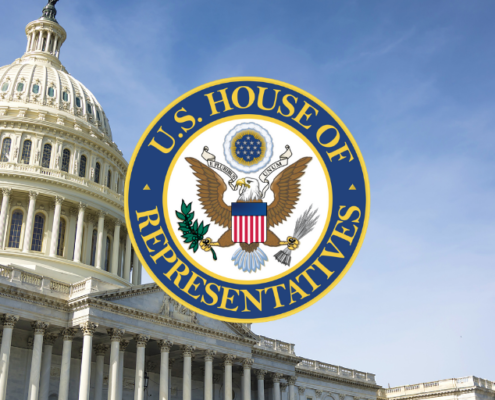Hockey Sidelined Again
After months on the sidelines, youth hockey players across the state eagerly laced up their skates in August. Under current youth and amateur sports guidelines, locker rooms operate at 50 percent capacity, only one spectator should attend per player, and players wear masks on the bench. Unlike in MIAA high school sports, players do not wear facemasks while they play, except during faceoffs.
Unfortunately, these restrictions failed to insulate the hockey community from COVID-19. After several coronavirus clusters were linked to the sport, Governor Baker ordered hockey rinks to close from October 23 until at least November 7. Thirty clusters and at least 110 cases have been traced back to hockey rinks. The number of cases is likely much higher than that, with the Department of Health citing 220 close contacts and 22 probable cases.
Governor Baker understands the importance of hockey for many Massachusetts families and acknowledges “the shutdown wasn’t welcome news.” However, Baker is not alone in his concern over hockey rinks. State officials in New Hampshire and Vermont enacted similar measures after COVID-19 outbreaks were linked to hockey in their states.
In New Hampshire, players were welcomed back to the rink on Friday, October 29 under new regulations. Players and coaches in New Hampshire have to test negative for COVID-19 before November 6 to be eligible for play. However, the state’s testing capacity has failed to accommodate the 20,000 members of the hockey community. At testing sites in Manchester, NH, administrators worried that symptomatic patients would not be able to get a test because of the high demand from hockey players.
Meanwhile, in Vermont, Governor Scott imposed milder restrictions. He ordered that ice rinks not accept new reservations from October 16 until October 30. Existing events, however, were allowed to continue. Scott also asked the Vermont Agency of Commerce and Community to “determine if a more aggressive response is needed to prevent further spread of COVID-19 related to activities in indoor skating, hockey and other recreational facilities.”
Governor Baker argues the danger does not come from hockey itself. Rather, he worries about interactions between attendees and players off the ice at tournaments. As Baker explains, “these tournaments involve people showing up at a rank at seven or eight o’clock in the morning, playing a series of games over the course of the day, and basically spending more time at the rink with each other, engaged in conversation, sharing food, potentially sharing a drink.” Kevin Kavanagh, executive director of Massachusetts hockey, shares a similar view. He has not heard of confirmed cases from transmission on the ice. Despite such confidence from Kavanagh and Baker, the CDC still labels hockey a “high-risk” sport.
The stakes are high for keeping hockey rinks safe. Hockey games bring together players from across towns and even states. An outbreak at a tournament has the potential to impact several school districts and communities. With most schools on hybrid schedules, students already have limited time in the classroom. If coaches and players hope to return to the rink, their behavior and protocols have to change.
Contact tracing is a key strategy to contain the virus and open schools and sports safely. Governor Baker and Secretary of Health and Human Services Marylou Sudders are disappointed with the lack of cooperation with that effort. In many cases, coaches have refused to share team rosters with contact tracers and even allowed players who should be under quarantine to participate on other teams. The president of Massachusetts Hockey Bob Joyce denounced the failure of teams and coaches, saying “we do not support the obstruction of contact tracing and believe that families, programs and facilities all need to work together to facilitate the process.” For hockey to resume, as so many players hope it will, coaches will have no choice but to participate in contact tracing efforts. Secretary Sudders warns that, under updated guidelines, teams could be banned from play if they fail to share rosters and answer calls about contact tracing.
Beyond restricted contact tracing, state officials have another difficult problem to combat—inconsistency. Although the U.S. Ice Rink Association’s Returning to the Rinks guidelines and state sport regulations help ensure safety, state officials cannot police every rink across the state. Ultimately the burden falls on rink operators and coaches to follow safety protocol, and according to Julie Pryor, a hockey mom from Newton, not all of them do. She explains “the problem is that you play hockey the next day in a different rink, in a different town, and it’s like there’s no pandemic happening. Anybody can go in, nobody’s enforcing the rules.”
Athletics provide incredible value for children. Young athletes improve their physical health, find an outlet for stress, and form friendships with teammates. Youth sports also yield success in the classroom and workplace. Amid the COVID-19 pandemic, children need sports more than ever. Across Massachusetts, most students learn from home at least part-time and lack social interaction. Natalie Duncan shared her disappointment, saying “I’ve been remote and hockey is like my only time out of the house. So it’s going to be hard not playing.” For Natalie and 50,000 other Massachusetts youth hockey players to get back on the ice, cooperation with contract tracing and strengthened safety protocols are key.
COVID-19 Safety Recommendations
- Contact tracing efforts need to be improved, and coaches and parents will be expected to comply and provide rosters
- Players and coaches should get tested and quarantine for fourteen days if they are contacted about a potential exposure
- Players should show up to the rink dressed for the game to limit time in the locker room
- Social distancing standards and safety protocol should be consistent in all rinks
- In Vermont, epidemiologist Patsy Kelso warns that the risk of transmission increases when players travel to out-of-state or county games that are high-risk communities for COVID-19. For MIAA high school sports, teams cannot compete with schools in the designated red zones (>8k cases per 100,000 people). Currently, youth hockey does not have those restrictions.
Maddy Lowy is an intern at the Pioneer Institute. She will be a first year at the University of Virginia next fall.
Get Our COVID-19 News, Tips & Resources!
Related Posts

